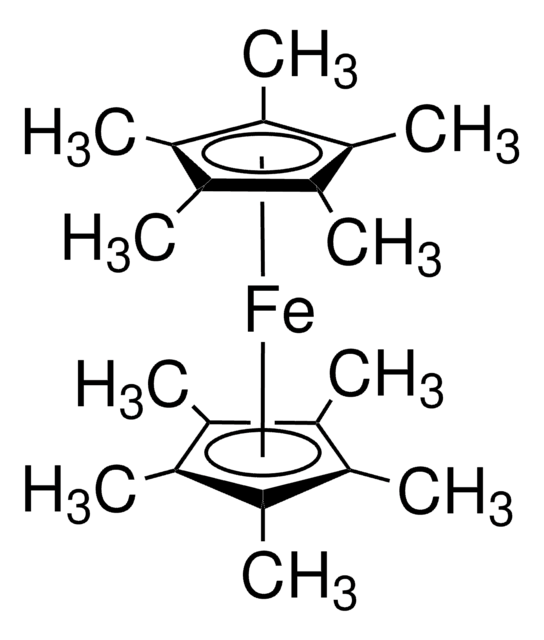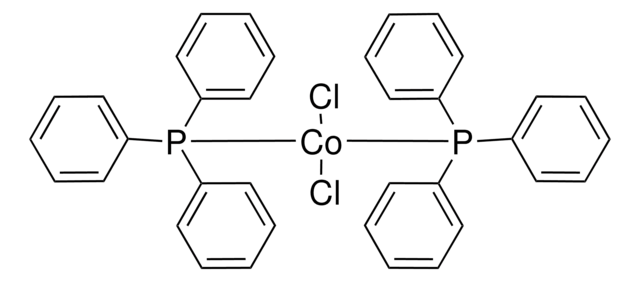401781
Bis(pentamethylcyclopentadienyl)cobalt(II)
Synonym(s):
CoCp*2, Decamethylcobaltocene
About This Item
Recommended Products
form
solid
Quality Level
reaction suitability
core: cobalt
mp
>210 °C (lit.)
storage temp.
2-8°C
SMILES string
[Co].C[C]1[C](C)[C](C)[C](C)[C]1C.C[C]2[C](C)[C](C)[C](C)[C]2C
InChI
1S/2C10H15.Co/c2*1-6-7(2)9(4)10(5)8(6)3;/h2*1-5H3;
InChI key
XDHJNPINFJSJJB-UHFFFAOYSA-N
Related Categories
General description
Application
- An n-type dopant to fabricate organic electronic materials such as copper phthalocyanine thin films.
- A reducing agent to synthesize high-quality reduced graphene oxide thin films at room temperature.
- A metal organic precursor for plasma-enhanced atomic layer deposition of cobalt.
Storage Class Code
11 - Combustible Solids
WGK
WGK 3
Flash Point(F)
Not applicable
Flash Point(C)
Not applicable
Personal Protective Equipment
Choose from one of the most recent versions:
Already Own This Product?
Find documentation for the products that you have recently purchased in the Document Library.
Customers Also Viewed
Articles
Highly reducing or oxidizing species enhance organic semiconductor conductivity by reducing charge-carrier injection barriers.
Highly reducing or oxidizing species enhance organic semiconductor conductivity by reducing charge-carrier injection barriers.
Highly reducing or oxidizing species enhance organic semiconductor conductivity by reducing charge-carrier injection barriers.
Highly reducing or oxidizing species enhance organic semiconductor conductivity by reducing charge-carrier injection barriers.
Our team of scientists has experience in all areas of research including Life Science, Material Science, Chemical Synthesis, Chromatography, Analytical and many others.
Contact Technical Service











